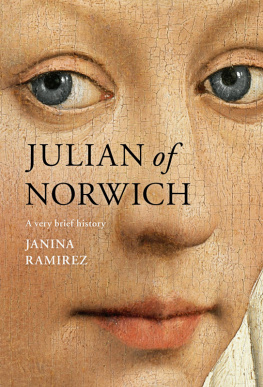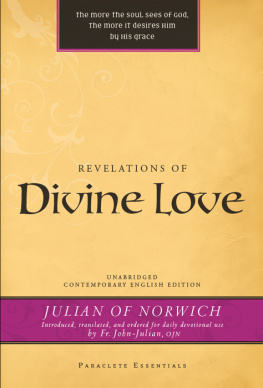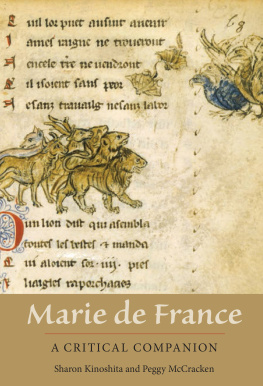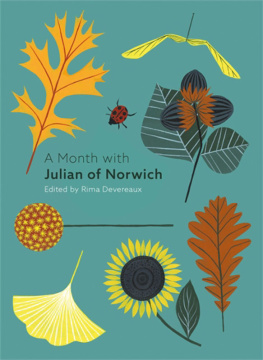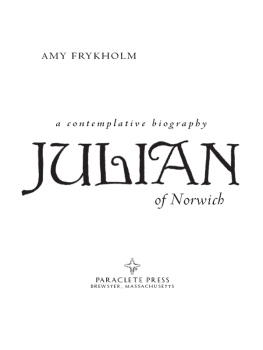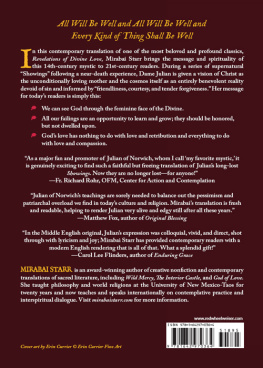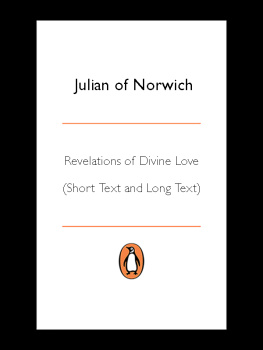First published in Great Britain in 2016
Society for Promoting Christian Knowledge
36 Causton Street
London SW1P 4ST
www.spck.org.uk
Copyright Janina Ramirez 2016
All rights reserved. No part of this book may be reproduced or transmitted in any form or by any means, electronic or mechanical, including photocopying, recording, or by any information storage and retrieval system, without permission in writing from the publisher.
SPCK does not necessarily endorse the individual views contained in its publications.
Every effort has been made to seek permission to use copyright material reproduced in this book. The publisher apologizes for those cases where permission might not have been sought and, if notified, will formally seek permission at the earliest opportunity.
British Library Cataloguing-in-Publication Data
A catalogue record for this book is available from the British Library
ISBN 9780281077373
eBook ISBN 9780281076857
eBook by Graphicraft Limited, Hong Kong
To Uncle Zbyszek, who lit the touch paper, Vincent Gillespie, who fanned the flames, Jane Hawkes and Mary Garrison, who curbed the wild fire, and my colleagues and students at Oxford University, who light fires of their own.
And to those I love.
They who love most shall be most blessed, not they who lead the most austere life, for love outweigheth this.
Ancrene Wisse: Guide for Anchoresses
Contents
Revelations of Divine Love is a strange book to read. It is the earliest surviving book written by a woman in English. And it is strange because it is too complex a work simply to read through cover-to-cover. It contains the contemplations of one mind across decades, thoughts that the enigmatic Julian of Norwich returned to again and again while walled up, living out her death as an anchoress within the four walls of her cell. There are coherent threads, but it ranges widely and draws its strands together like a spiders web. I first read it as a complete work, yet it left me wanting to go back and dissect it, scrutinize certain passages and read sections out of sequence. A recent translator on the text commented that Julian needs to be taken in short measures, not downed by the pint, and I would agree. Of all the works I have read, hers is the one I most want to read passage by passage, phrase by phrase, word by word. As she gave time to writing it, we must give time to reading it. The rewards are immense.
Her very name, Julian of Norwich, reflects the enigmatic mix of mystery and reality combined in this incredibly important woman: the first known woman to write in English. Her name has become synonymous with the place in which she was walled up as an anchoress for up to thirty years the Church of St Julian in Norwich. But apart from this basic information, we know very little about Julian herself. A woman in a mans world, her name reveals a patriarchal Church where women had to navigate a thorny path if they wanted their voices to be heard. Scholarship, spirituality, study these were the preserve of men rather than women, so for a woman to write a book in the fourteenth century was both dangerous and difficult.
But what a book she wrote. Her Revelations of Divine Love offers timeless insights into God, love, sin, suffering, all in a form of poetic prose that is unique, beautiful and powerfully moving in English. The book and the name of its author were nearly lost to the fires of reformers and the passage of time, but over six centuries a sequence of female thinkers protected their memory, so that, against the odds, her voice can still be heard today. Julian deserves to be seen as the female Chaucer or the female Thomas More. But her femininity is not the only thing to define her. Revelations of Divine Love would be considered an exceptional book written at any time or place, written by a man or a woman. The fact that it was written by a female anchorite, in fourteenth-century Norwich, at a turbulent and religiously significant time, makes it all the more fascinating.
The book Julian wrote contains passages that have given hope to many during times of pain or suffering. It is a book full of positivity and optimism, but it also contains ideas about spirituality that continue to resonate in our modern world. When describing the universe as a hazelnut that she holds in her hands, Julian is expressing an idea of enlightenment that underlies all world religions, and is the goal of so many spiritual seekers today. When contemplating Gods love as that of a mother, she can appeal to modern readers searching for a religious view that draws on both the male and female. When describing love and peace as all that matters, she shows a spiritual path that chimes with current feelings against war and hostility. When she says all shall be well, many of us today want to hear that.
Julian deserves to be better known. As Mother of English literature, she deserves recognition, but the quality of her work, the potency of her prose, the beauty of the revelations and the broad-minded way in which she engages with Christian ideas, all mean she rewards a lifetime of study. Excellent modern translations of Julians text are now readily available, and new research is continually appearing to shed more light on her. Pope Francis recently cited her, drawing inspiration from this medieval anchorite from Norwich, stating: In one of her visions, Julian of Norwich hears the Lord say that he rejoices eternally because he was able to suffer for our sake out of love. The Queen has all shall be well, all shall be well, and all manner of things shall be well on a stained glass window in front of her when she prays at the Chapel Royal in St Jamess Palace. Julians importance is recognized, but we should be celebrating her more. This little book is my small contribution.
I want to thank everyone who helped with the writing of this book. Philip Law and SPCK have been wonderfully supportive at every stage, as have Rosemary Scoular, Aoife Rice and Ed Hodgson. The Bodleian Library, as always, supplied all the research materials I could have hoped for and more. The sisters at Stanbrook Abbey, Yorkshire, particularly Sister Scholastica and Abbess Andrea, gave tirelessly of their knowledge and archives to assist with tracing the legacy of Julian. Fabian Laforge at the Municipal Library in Cambrai provided access to the catalogue of the convents holdings, and both the British Library, London and the Bibliothque Nationale in Paris allowed me access to the two earliest surviving manuscripts of Revelations of Divine Love . The British Museum has also assisted in terms of access to the fourteenth-century crucifix, and Norwich Cathedral similarly with the Despenser Retable.
There are many people striving to get Julians story out to a wider audience: Sally-Ann Lomas, Margit Thofner, Richard Graveling, Steve Absomb and all at Tin Can Island. My thanks go out to the Bishop of Norwich and to Rowan Williams for making time to discuss Julian with me. Of course, this book would not have been written without the love and support of my family. Dan, Kuba and Kama, Babi and Papa, you all know that love is the meaning. My greatest thanks are reserved for Professor Vincent Gillespie. I would never have known of Julian, or indeed continued my lifelong passion for medieval literature, if he had not ignited a spark in my undergraduate years. His devotion to Julian has remained strong for decades, and I hope this short introduction will encourage more people to see how one womans work, written over six hundred years ago, can reward a lifetime of study.
1300 Birth of Richard Rolle
1303 Birth of Bridget of Sweden, famous mystic
1309 Pope Clement V moves the papacy to Avignon

